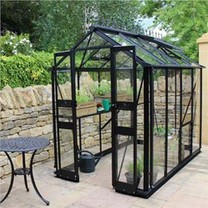The plastic film is not air-permeable. For cultivation in the shed, the humidity of the air in the shed increases due to the evaporation of soil moisture and the transpiration of the crop. If there is no ventilation, the relative humidity of the air in the shed can reach more than 0.9, or even 1.0. The law of change is that the shed temperature increases and the relative humidity decreases; the shed temperature decreases and the relative humidity increases; the relative humidity is low on sunny and windy days, and the relative humidity increases on cloudy and rainy days. The humidity in the shed rises rapidly as the temperature of the shed rises, and even increases exponentially. If the relative humidity in the shed is too high, the transpiration of the plant leaves will be suppressed, the soil moisture and the air humidity in the shed will increase, and a large number of water droplets will condense on the shed film, which will affect the photosynthesis of the crop and is not conducive to the growth and development of the plant. It also causes the germs to multiply, the disease spreads, and the harm is serious. Therefore, adjusting the temperature and humidity in the shed, especially at night, is an important measure to prevent and control diseases and promote the growth and development of crops, which should be paid attention and strengthened.






